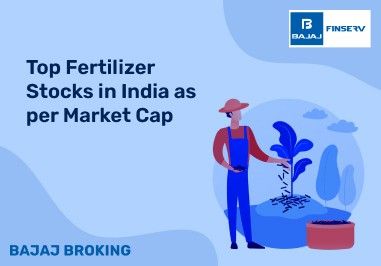BAJAJ BROKING
PDP Shipping & Projects IPO is Open!
Open a Free Demat Account
Trade Now, Pay Later with up to 4x
Track Market Movers Instantly
What are FIIs and DIIs?
For any investor or any individual who wishes to try their hand at stock investing, it is vital to know aspects of the stock market and the stocks themselves. There are various factors that can affect the behaviour of stocks and the market itself, that is, how stock markets fluctuate and more. If you are a potential investor, it is important to know about these. Some concepts related to stocks and stock markets are FIIs and DIIs. What or who are these? And what do they have to do with the stock market and investors? Let’s delve in and find out.
What/Who are FIIs?
The acronym FII stands for “Foreign Institutional Investor”. This is not typically a “who” but a “what”. Foreign Institutional Investors are essentially large foreign companies or institutions that invest their capital in Indian corporations. This means that they basically invest in a large amount of Indian company stock. When Foreign Institutional Investors invest in Indian companies, and consequently, in Indian stock markets, the confidence in the economy gets a boost, and stock markets move in a positive direction. Another key advantage of foreign investment is that it generates global exposure.
There are some famous FIIs that invest in large Indian corporations like *TCS, HDFC Bank, Reliance, Infosys, and other companies spanning a range of sectors. These FIIs include the following:
- BlackRock – This is an FII that has predominantly invested in Indian companies spread over many sectors.
- Vanguard – The Vanguard Group is known to invest in large IT companies as well as banking and pharma companies.
- Morgan Stanley – A prominent FII, Morgan Stanley typically invests in Indian consumer goods companies and financial enterprises in India.
Additional Read: What Is Arbitrage?
What are DIIs?
DII represents “Domestic Institutional Investor”. DIIs are those Indian companies (hence, domestic) that invest in companies in their own country, India. Such companies comprise banks, mutual fund houses, or insurance companies. Since they operate in India, they are termed “domestic”.
The Difference between FIIs and DIIs
Once you know the main difference between FIIs and DIIs, you will be able to gauge how they affect the markets and your investments. However, there are other differences you should know about too:
- Investment Goals
Investments that FIIs make result in short-term market fluctuations. This is due to the fact that they tend to adjust their investments quite frequently. DIIs tend to make more stable investments as they invest for the long term. They view investments from the point of view of the long-term economic growth of the country. FIIs may create fluctuations in the market but DIIs maintain a balance.
- FII and DII Regulations
To make investments in India, FIIs and DIIs must follow certain rules and regulations. However, these are different for FIIs and DIIs. These regulations are determined by the Securities and Exchange Board of India (SEBI).
Additional Read: What is capital stocks?
FIIs and DIIs – The Impact on Investors
You may be wondering how FIIs and DIIs impact individual investors. Since the actions of FIIs and DIIs have a direct impact on the country’s economy, they directly affect your investments as well. Additionally, by now you know that they have an impact on the market too, and can take stock prices high or low. Hence, they actively drive market sentiment.
Say, if FIIs are investing more in the market, the overall market trend may be positive, but there may be volatility too. DIIs, on the other hand, go a long way in keeping markets stable when markets face volatility due to excessive FII investments. As FIIs make their investments according to global factors, they tend to foster market volatility, whereas DIIs take the internal conditions of the country into account, so they are stable.
Another way that DIIs and FIIs affect your individual investments is by their investments in companies. Company stock price movements may depend on specific DII and FII investments, and you should be aware of this.
Additional Read: What is Mezzanine Capital?
The Movement of FIIs and DIIs
Both FIIs and DIIs invest in large corporations, but they don’t do so blindly. A lot of due diligence takes place before investments are made. FIIs research companies and global and domestic trends before investing. If investors know their reasons for investing, they can gain more knowledge about the particular company stocks being invested in. Tracking how FIIs and DIIs move in the market is a good way for investors to understand overall trends, economic conditions, and other factors affecting stock investments and prices. Perhaps, you can also gain some insight into the strategies they employ for investing.
Final Words on DIIs and FIIs
Now that you have a good grasp of the definitions of DIIs and FIIs, you may be more confident about your investment activity. As you already know, it is always important to pay close attention to different factors while you invest in the stock market, and nothing beats your own diligent research to make informed decisions.
Disclaimer: Investments in the securities market are subject to market risk, read all related documents carefully before investing.
This content is for educational purposes only.
*Securities quoted are exemplary and not recommendatory
Share this article:
Read More Blogs
Our Secure Trading Platforms
Level up your stock market experience: Download the Bajaj Broking App for effortless investing and trading













